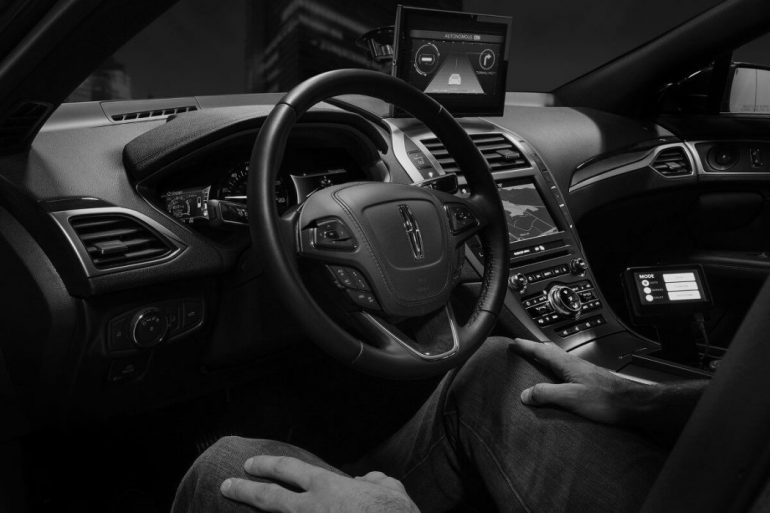An Oakland, California company’s vehicle-based payment platform is attracting attention from a couple of Canadian corporate heavyweights.
Waterloo’s BlackBerry Limited said it’s partnering with Car IQ, a connected car FinTech startup, while TELUS Ventures announced its participation in a Series B funding round that raised $18.7 CAD ($15 million USD) for Car IQ.
“BlackBerry IVY allows us to fully embed our solution on a common platform in the vehicle.”
Announced on August 11, the round was led by venture capital firm Forté Ventures. With offices in Atlanta and Silicon Valley, Forté Ventures collaborates and co-invests with corporate strategic partners in technology companies across diversified industry sectors throughout the U.S. and Canada.
Other new investors included Ally Ventures, BlackBerry, and State Farm Ventures. They joined existing investors Alpana Ventures, Avanta Ventures, Citi Ventures, Quest Venture Partners, and Scrum Ventures.
Neither TELUS Ventures or BlackBerry disclosed the amount of their investments. The financing closed July 22.
Mario Mele, vice-president of strategy with TELUS Ventures, told BetaKit that the strategic venture arm of TELUS invests in companies tackling the biggest challenges in loT. Mele said CAR IQ is addressing the expensive and inflexible 50-year-old legacy payment offerings through the creation of a machine-centred solution that is more secure, easier to onboard, and connects directly to any payment platform.
According to Mele, TELUS decided to invest because the company believes that “Car IQ’s innovation will have broad applicability in the intelligent mobility space, and will help TELUS advance this strategy and other potential commercial partnerships.”
Car IQ’s contactless payment network allows connected cars and trucks to pay merchants and service providers without a credit card. With Car IQ, vehicles can pay for a wide variety of services, including fuelling, tolling, parking, and more, without needing to add extra hardware to the vehicle.
The funds will enable Car IQ to expand into new markets, and add features to its existing technology.
Car IQ’s patent-pending “Know Your Machine” technology is accepted by payment networks and is the foundation for the first machine payment network that uniquely authenticates vehicles, enabling direct vehicle-initiated transactions and payments.
“The global in-vehicle payments market accounted for close to $2 billion in 2019 and is estimated to reach around $9 billion by 2029,” said Sterling Pratz, CEO and founder of Car IQ.
The company’s AI-based authentication technology will use BlackBerry’s IVY, a scalable, cloud-connected software platform that runs inside the embedded systems of vehicles, but that is managed from the cloud.
“BlackBerry IVY allows us to fully embed our solution on a common platform in the vehicle, allowing us to not only provide the highest level of security, but also greatly reduce complexity for the banks and merchants,” Pratz said.
Transactions on Car IQ’s payment network have security elements built into the payment stream and are supported by patent-pending technology that enables banks and merchants to authorize vehicle purchases of all types of services autonomously.
“We believe machine banking is the future, where not just vehicles but any IoT device will be able to connect and pay autonomously.”
Car IQ is targeting the $650 billion spent annually on vehicle services using credit cards, debit cards, and ACH, where people must perform and manage the transaction. Existing payment methods are costly, difficult to reconcile, and prone to fraud. Customers cannot authenticate the actual vehicle, the service needs of the vehicle, or validate that the vehicle received a billed-for service. This creates security risks for the fleet operator, merchant, and payment network, according to Pratz.
Global automotive technology analyst firm, SBD Automotive, notes over 6,000 auto tech and mobility startups have been launched in the last decade. In a 2021 article, SBD pointed out that the previous decade of collaboration between the tech industry and the automotive industry focused on digital services.
The tech consultants maintain that “the next decade will be largely driven by non-consumer technologies: machine learning, artificial intelligence, cloud computing, edge computing, containerization, and big data all play a significant role in how vehicles will be designed and developed for the foreseeable future.”
Whether BlackBerry’s solution will keep Car IQ’s systems secure remains to be seen.
Upstream Security, a company that specializes in automotive cybersecurity, noted in a 2020 report that since 2016 the number of cybersecurity incidents involving connected cars increased by 605 percent. In 2019, the majority of incidents involved remote attacks.
RELATED: BlackBerry launches $50 million fund to work with AutoTech startups
And over the last decade, the top three incidents were car thefts/break-ins at 31 percent; control over car systems at 27 percent; and data/privacy breaches accounting for 23 percent of the attacks.
Upstream noted, however, that the connected car industry is “adopting a multilayered security approach: this involves new regulations and standards, security by design, in-vehicle and cloud-based automotive cybersecurity solutions.”
For its part, Car IQ has indicated that automobiles won’t be the only thing driving the company’s growth in the future.
Pratz said: “Our solution introduces the next generation of contactless payments, taking the logical step of connecting machines directly to banks and service providers and eliminating legacy processes that are difficult to manage or result in fraud.
“We believe machine banking is the future, where not just vehicles but any IoT device will be able to connect and pay autonomously—and it’s our technology that will make it possible.”


